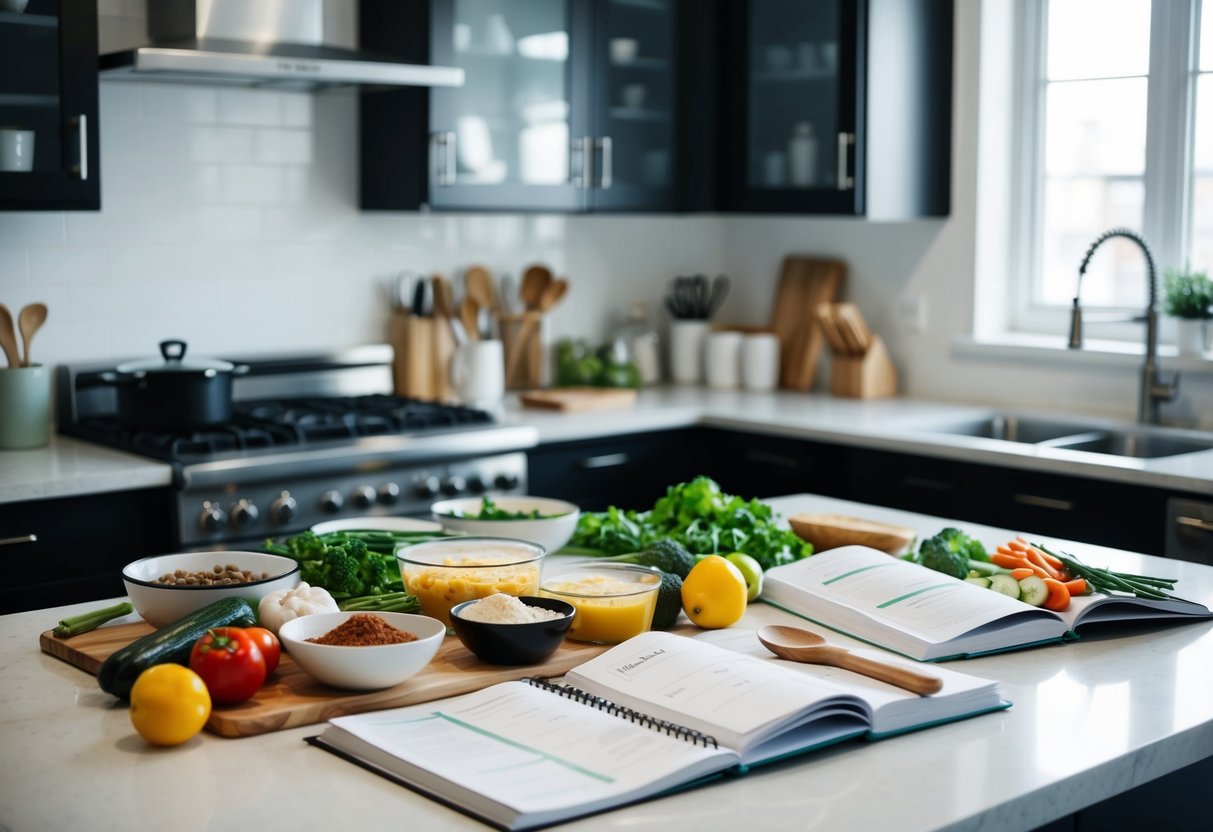DIY Meal Prepping: Weekly Recipes for a Healthier, Hassle-Free Lifestyle
High-Protein Meals

High-protein meals are essential for muscle building, weight management, and overall wellness. Incorporating a variety of lean proteins can make meal prepping enjoyable and nutritious.
Lean Proteins and Combinations
Lean proteins are crucial for a balanced diet and effective meal prep. They provide essential amino acids that help repair tissues and build muscle. Popular sources include chicken, turkey, and fish.
For instance, chicken burrito bowls are a versatile option. Combine grilled chicken breast with brown rice, black beans, and mixed vegetables. This not only offers high protein content but also a range of vitamins and minerals.
Salmon is another excellent choice. It’s rich in omega-3 fatty acids, which support heart health. A simple meal of baked salmon with quinoa and steamed broccoli can be both satisfying and nutritious. These combinations ensure a well-rounded intake of essential nutrients.
Building Muscle with Meals
For those aiming to build muscle, the quality and quantity of protein are key. High-protein meals such as steak and veggies provide substantial amounts of protein necessary for muscle repair and growth.
Grilled steak paired with roasted sweet potatoes and asparagus offers a balanced and filling option. The carbohydrates from the sweet potatoes replenish glycogen stores, while the protein in the steak aids in muscle recovery.
Another effective meal is a protein-rich smoothie. Blend whey protein powder with almond milk, spinach, and a banana. This quick and easy meal can be ideal post-workout, providing the nutrients needed to support muscle synthesis. By incorporating high-protein options consistently, muscle-building goals become more achievable.
Healthy Fats and Carbohydrates
Eating healthier often involves making deliberate choices about the fats and carbohydrates included in meals. Healthy fats such as avocados and nut butter, along with complex carbs, provide essential nutrients that support overall wellness.
Incorporating Healthy Fats
Fats are an essential part of a balanced diet, contributing to the absorption of fat-soluble vitamins and providing energy. Avocados are a prime source of monounsaturated fats, which help improve heart health. Adding slices of avocado to salads or sandwiches makes meals more nutritious.
Nut butters, like almond or peanut butter, are rich in healthy fats and can be spread on whole-grain toast or mixed into smoothies. They offer a satisfying taste and help maintain energy levels throughout the day. Choosing unsweetened varieties ensures no added sugars interfere with their health benefits.
Other healthy fat options include olive oil, which can be used for cooking or as a salad dressing, and fatty fish like salmon, which is high in omega-3 fatty acids. Including a variety of these fats in meal prep ensures a balanced intake of essential nutrients.
Choosing Complex Carbs
Complex carbs are vital for sustained energy and maintaining blood sugar levels. Foods like whole grains, legumes, and vegetables are excellent sources. For instance, quinoa and brown rice are high in fiber and can be used as the base for many meal prep recipes.
Incorporating whole grains into meals helps digestion and provides longer-lasting energy compared to refined carbs. Sweet potatoes are another excellent source of complex carbohydrates, rich in fiber and vitamins. They can be roasted or mashed as part of a balanced meal.
By choosing complex carbs instead of refined sugars and flours, individuals can maintain steady energy levels and avoid the crashes often associated with simple carbs. This practice not only supports overall health but also makes for more satisfying and nutrient-dense meals.



